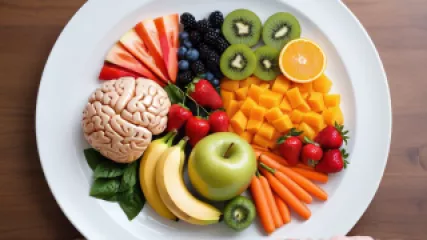Exploring the Relationship Between Food and Mood: A Personal Perspective
The Power of Food on Our Mood: A Personal Perspective
Food is more than just fuel for our bodies; it has the power to influence our emotions and impact our overall well-being. As someone who has personally experienced the profound connection between food and mood, I believe it is essential to explore this relationship from a psychological standpoint. In this opinion piece, I will share my perspective on the psychology of eating, discussing the interplay between food and mood and the potential implications for mental health coaching, food addiction counseling, nutritional psychology, and weight management counseling.
The Emotional Rollercoaster of Food
Have you ever noticed how your mood can shift after indulging in your favorite comfort food or enjoying a healthy, nourishing meal? This emotional response to food is not merely coincidental but rooted in the complex interaction between our brain, gut, and emotions.
Research has shown that certain foods can trigger the release of neurotransmitters such as serotonin and dopamine, which are responsible for regulating our mood and emotions. Foods rich in carbohydrates, for example, can boost serotonin levels, leading to a sense of calm and contentment. On the other hand, consuming sugary or processed foods can result in a temporary spike in dopamine, producing feelings of pleasure and reward.
Moreover, the act of eating itself can be a source of comfort and emotional regulation for many individuals. Food can serve as a coping mechanism, providing temporary relief from stress, anxiety, or sadness. However, relying on food as a primary means of emotional support can lead to unhealthy eating patterns and even develop into a food addiction.
The Role of Mental Health Coaching
Mental health coaching plays a crucial role in understanding and addressing the psychology of eating. By delving into the underlying emotional triggers and thought patterns associated with food, mental health coaches can help individuals develop healthier relationships with food and improve their overall well-being.
Through supportive guidance and evidence-based strategies, mental health coaches can assist clients in identifying emotional eating patterns and developing alternative coping mechanisms. By raising awareness of the connection between food and mood, mental health coaching can empower individuals to make more mindful food choices and cultivate a positive relationship with their bodies.
Unraveling Food Addiction
Food addiction is a complex issue that requires specialized counseling and support. Those who struggle with food addiction often experience a loss of control around certain foods, compulsively overeating despite negative consequences. Understanding the psychological components of food addiction is crucial in providing effective treatment.
Food addiction counseling involves exploring the underlying emotional factors and triggers that contribute to addictive behaviors. It aims to address the root causes of food addiction and develop strategies for managing cravings, building self-esteem, and fostering healthier coping mechanisms.
The Science of Nutritional Psychology
Nutritional psychology is an emerging field that examines the impact of diet on mental health and well-being. It focuses on the intricate relationship between nutrition and psychological processes, including cognition, mood, and behavior. By understanding how specific nutrients influence brain function, nutritional psychology offers valuable insights into optimizing mental well-being.
Research has shown that deficiencies in certain nutrients, such as omega-3 fatty acids, B vitamins, and magnesium, can contribute to symptoms of depression and anxiety. Conversely, adopting a nutrient-rich diet, including fruits, vegetables, whole grains, and lean proteins, has been associated with improved mood and cognitive function.
Integrating nutritional psychology into weight management counseling can enhance the effectiveness of weight loss programs. By addressing the underlying psychological factors affecting eating behaviors and promoting a balanced, nutrient-dense diet, weight management counselors can facilitate sustainable and holistic approaches to weight loss.
Conclusion
The relationship between food and mood is undeniably profound, encompassing both physiological and psychological dimensions. By recognizing the emotional impact of food and adopting a mindful approach to eating, we can cultivate healthier relationships with food and improve our overall well-being. From mental health coaching to food addiction counseling and nutritional psychology, understanding the psychology of eating offers valuable insights into optimizing our mental health and achieving long-term wellness.






